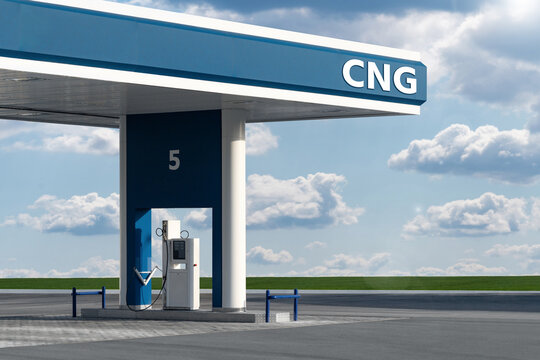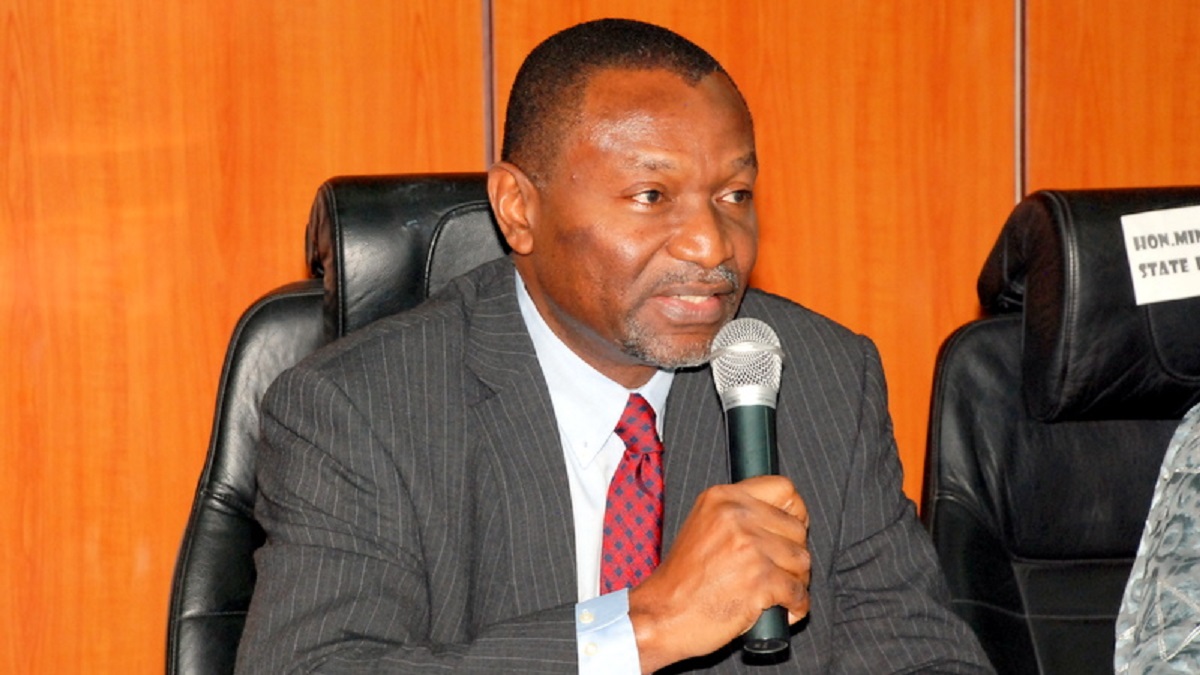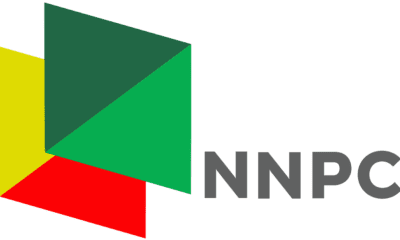Energy
NUPRC constitutes committee to address inactive oil blocks
Dr Kelechi Ofoegbu, Executive Commissioner, Economic Regulation and Strategic Planning, NUPRC, made this known at its Consultation Forum on Friday in Abuja.
The committee, he said, will adopt holistic measures to reverse trend of the 23 failed oil blocks being managed by oil companies under the Production Sharing Contracts (PSC) with Nigerian National Petroleum Company (NNPC) Limited.
Energy
FG may fund installation of CNG pumps as marketers lament high cost


The Federal Government may consider assisting independent fuel marketers with funding to install Compressed Natural Gas sales pumps at filling stations across the country, newsmen has learnt.
This followed the lamentation of the Independent Petroleum Marketers Association of Nigeria that its members were unable to finance the installation of CNG sales pumps at their filling stations in line with the presidential directive promoting the CNG initiative.
The marketers said the cost of installing CNG pumps was prohibitive for its members, adding that the high-interest rate charged by banks also made borrowing money for the project an unattractive option.
President Tinubu had announced an end to the fuel subsidy era during his inauguration on May 29, 2023, a move that triggered a hike in the cost of the product.
The President, however, promised to roll out measures, including CNG-powered mass transit buses and tricycles, to cushion the impacts of the subsidy removal. After almost one year in office, that initiative is set to come to life.
According to presidential aide, Bayo Onanuga, the Federal Government planned to launch its compressed natural gas initiative in May ahead of President Bola Tinubu’s first anniversary.
“In all, over 600 buses are targeted for production in the first phase that will be accomplished this year,” he said in a statement.
“A new plant on the Lagos-Ibadan Expressway will assemble thousands of tricycles. The SKD parts manufactured by the Chinese company, LUOJIA, in partnership with its local partner to support the consortium of local suppliers of CNG tricycles are set for shipment to Nigeria and are expected to arrive early in May. About 2,500 of the tricycles will be ready before May 29, 2024,” he added.
Onanuga said the Federal Government was targeting the purchase of 5,500 CNG vehicles (buses and tricycles), 100 electric buses and over 20,000 CNG conversion kits, in addition to spurring the development of CNG refilling stations and electric charging stations.
“With necessary tax and duty waivers approved by President Tinubu in December 2023, the Presidential CNG Initiative committee is partnering with the private sector to deliver the promise of the initiative. The private sector has responded with over $50m in actual investments in refuelling stations, conversion centres, and mother stations,” he said.
Also, the FG, through the Chief Executive Officer of the Nigerian Midstream and Downstream Petroleum Regulatory Authority, Farouk Ahmed, had issued a directive mandating oil marketing companies to instal CNG pumps in filling stations across the country.
Ahmed, who described the push by the Federal Government to encourage the use of CNG as an alternative to petrol as a revolution, said the government was determined to reduce the burden of petrol on the economy. As such, the government said intending retail licensees would now be required to establish CNG points in their filling stations before getting final government approval.
He said, “We want to reduce the burden of the importation and consumption of PMS. We explored the possibility of converting the energy requirement of retail outlets and depots by the stakeholders here going into solar, but there is a high entry cost. We have discussed that, and it is going to be in phases. By doing so, we will reduce the demand for diesel in terms of powering our generators by utilising solar options. Once we are done with consultations, we will require that CNG add-ons be put in petrol stations and for new applications, one of the requirements will be that you must have a CNG add-on in the petrol station.”
Energy
ANOH gas project can provide electricity for five million homes — Seplat Energy


The board chairman of Seplat Energy, Udoma Udoma has announced that the newly inaugurated Seplat Energy ANOH Gas Processing Plant can generate electricity for 5 million Nigerians.
Udoma stated this at the commissioning ceremony of the plant, held in Ohaji, Imo State, by President Bola Tinubu.
Built by the ANOH Gas Processing Plant Company (AGPC), the plant is a joint venture equally owned by Seplat Energy and the Nigerian Gas Infrastructure Company (NGIC), a subsidiary of the Nigerian National Petroleum Corporation (NNPC).
The plant achieved mechanical completion in December 2023, recording no Lost Time Incidents (LTIs) over 12 million man-hours.
With a Phase One processing capacity of 300 million standard cubic feet per day, the ANOH plant is set to deliver dry gas, condensate, and LPG to both domestic and international markets.
Tinubu praised Seplat Energy and its partners for their efforts, stating, “Today is a great day of achievement demonstrating teamwork, commitment, and dedication to duty. I congratulate you for all you have done for the country and for fulfilling this in only 11 months.
“The ANOH gas project strongly aligns with Seplat Energy’s mission of leading Nigeria’s energy transition with accessible, affordable, and reliable energy that drives social and economic prosperity.
“As a testament of our pledge to Nigeria, in partnership with the NNPC Ltd, we have delivered this project that will support the current administration’s drive for industrialization and growth of the economy through low-cost reliable power.
“To put this into context, if all of the gas from this plant went into the power sector, it would produce enough electricity to transform the lives of over 5 million people. Given that Nigeria’s population is growing at a rate of over 5 million per annum, we need one of these plants a year every year just to meet the demand of our new arrivals.
“We appreciate the unwavering support of our partner NNPCL, the cordial relationship with our host communities, Imo state government and the support of all stakeholders that are too many to mention,” Udoma added.
CEO of Seplat Energy, Roger Brown, remarked, “Seplat Energy is pleased with the progressive reforms by President Bola Ahmed Tinubu and his administration. In March 2024, the President signed executive orders to enhance investments in greenfield gas development and midstream capital projects.
“Also, the Nigerian Midstream and Downstream Petroleum Regulatory Authority (NMDPRA) recently improved gas prices under the DSO, to trigger further investments to the domestic gas sector – our ANOH gas plant will benefit from these reforms and incentives. No doubt, the ANOH’s gas will further reduce Nigeria’s carbon intensity and increase energy supplied to the Nigerian domestic market.”
The commissioning ceremony was attended by Seplat Energy’s board members, management and staff, government officials, institutional partners, traditional rulers, and industry players, among others.
Group CEO of NNPC, Mele Kyari, commented on the collaborative efforts, stating, “The ANOH Gas Processing Plant being commissioned by NNPCL and our partner is in line with Nigeria’s decade of gas agenda and particularly consistent with the administration’s efforts to boost gas supply in the domestic market.”
Imo State Governor, Hope Uzodinma, represented by Deputy Governor Chinyere Ekomaru, congratulated Seplat Energy on the timely completion of the project and expressed optimism about the opportunities it brings to the state.
Minister of State Petroleum Resources (Gas), Ekperikpe Ekpo, added, “With a capacity of 600 million standard cubic feet per day, the ANOH Gas Processing Plant is a shining example of advancement. This plant will greatly advance the availability of domestic gas which will boost power generation and hasten industrialisation.”
The ANOH Gas Processing Plant, which is situated in Ohaji, Imo State, is poised to emerge as one of Nigeria’s most important gas initiatives. It would speed up the switch from diesel generators to cleaner, more affordable fuels like natural gas for power generation and enable higher gas production.
Energy
Dangote Refinery seeks 2m barrels of US oil – Report


Nigeria’s newly constructed Dangote refinery, Lagos is seeking to purchase millions of barrels of US crude oil over the next year as it ramps up processing rates, Bloomberg reported on Thursday.
According to the report, the plant has issued a term tender for the purchase of two million barrels a month of West Texas Intermediate Midland crude for 12 months starting in July.
“The plant, built by Africa’s richest man, Aliko Dangote, issued a so-called term tender for the purchase of two million barrels a month of West Texas Intermediate Midland crude for 12 months starting in July, according to a document seen by Bloomberg. The tender closes on May 21,” the report stated.
Recall that the 650,000 barrels per day Dangote Petroleum Refinery is taking advantage of cheaper oil imports from the United States for as much as a third of its feedstock as it starts production.
An earlier report by Bloomberg on April 18 stated that the plant has been shipping products in weeks while readying two units to enable gasoline (petrol) output that will deliver a long-promised transformation of the fuel market both in Nigeria and the region. It attributed this to analysts.
“Dangote is going to influence Atlantic Basin gasoline markets this summer and for the rest of the year,” said Alan Gelder, Vice President of Refining, Chemicals, and Oil Markets at the consultancy firm, Wood Mackenzie.
-
Finance4 months ago
Court orders Sen. Victor Umeh to repay N136m bank debt to AMCON
-



 Abuja Update3 months ago
Abuja Update3 months agoUNDP, FG partnership needed to achieve inclusion, equity- Minister
-
Abuja Update2 months ago
Banks drive stock market performance with N147bn gain
-
capital market2 years ago
Rt.briscoe, FBNH, Others halts negative performance of stock market
-
Submission Guidelines4 months ago
CALL FOR SUBMISSIONS: POETRY COLUMN-NND
-



 Health1 month ago
Health1 month agoCapacity training will reduce migration of health workers- NPHCDA
-



 Business4 weeks ago
Business4 weeks agoTingo Group unveils Tingo Electric, Tingo Cola drink at Lagos launch
-
News5 months ago
Oil thieves sponsoring malicious media campaign against Navy – Spokesman












